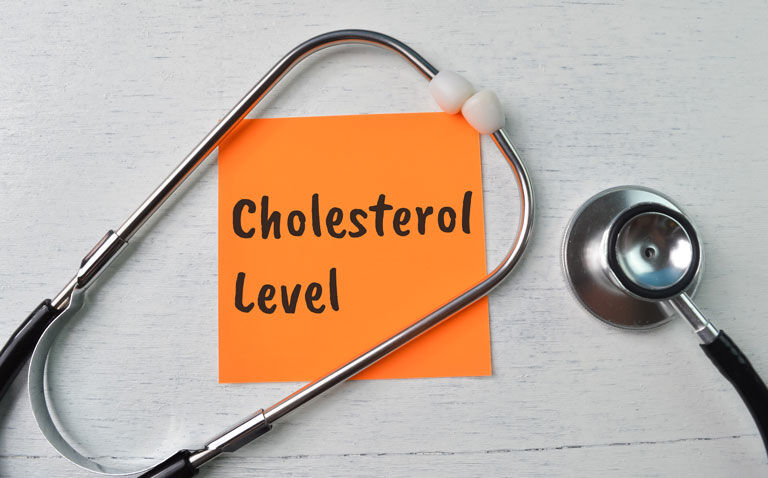PCSK9 inhibitors and ezetimibe added to statins in high-risk cardiovascular disease patients reduces non-fatal MIs/stroke but not mortality, study shows
Adding PCSK9 inhibitors and ezetimibe to maximally tolerated statin therapy in patients at a high risk of a cardiovascular event reduces the risk of a non-fatal myocardial infarction (MI) and non-fatal stroke but does not significantly reduce either all-cause mortality or cardiovascular mortality.
This was the main finding from a network meta-analysis of trials by a group of US and Chinese researchers.
The 2021 European Society of Cardiology guidelines on cardiovascular disease prevention in clinical practice recommend that a high-intensity statin is prescribed up to the highest dose that can be tolerated in order to reach the LDL target for a specific risk group.
Furthermore, the joint American College of Cardiology/American Heart Association Task Force has suggested that in patients at very high cardiovascular risk and whose LDL-C level remains ≥70mg/dl (≥1.8mmol/l) on maximally tolerated statin and ezetimibe therapy, adding a PCSK9 inhibitor is a reasonable option.
Previously published data has already shown that when added to statin therapy, ezetimibe produces an incremental lowering of LDL cholesterol levels and improved cardiovascular outcomes. Similarly, addition of alirocumab (a PCSK9 inhibitor) to patients receiving high-intensity statin therapy, reduced the risk of recurrent ischaemic cardiovascular events.
Whilst the benefits of both treatments cholesterol lowering agents are clear, the benefits to an individual patient depends upon their baseline risk. Moreover, the absolute incremental benefit derived from combining PCSK9 inhibitors and ezetimibe either separately or in combination, among individuals taking a maximally tolerated dose of statin or for those who are statin-intolerant and with different levels of baseline cardiovascular risk, remains to be determined.
For the present study, the authors performed a network meta-analysis of randomised controlled trials in which patients had a median baseline LDL cholesterol value > 1.8mmol/l and where they were randomised to receive PCSK9 inhibitors vs control, ezetimibe vs control, or PCSK9 inhibitors vs ezetimibe.
The researchers assessed the relative and absolute risks (per 1000 patients treated for 5 years) in terms of non-fatal MI, non-fatal stroke, all-cause mortality and cardiovascular mortality. Patients were also categorised as being at low to very high cardiovascular risk.
The authors set the minimal important difference as 12 per 1000 reductions for non-fatal MI, 10 per 10,000 for a non-fatal stroke and 8 per 1000 for all-cause or cardiovascular mortality.
PCSK9 inhibitors and ezetimibe and cardiovascular outcomes
A total of 16 trials with 111,098 patients (median age 61 years) and a median LDL cholesterol concentration of 2.71mmol/l, were followed-up for a median of 2 years and included in the analysis.
Among patients prescribed statins, addition of a PCSK9 inhibitor reduced the risk of a non-fatal MI by 19% (relative risk, RR = 0.81, 95% CI 0.76 – 0.87), non-fatal stroke by 26% (RR = 0.74) but not all-cause mortality (RR = 0.95, 95% CI 0.87 – 1.03) or cardiovascular mortality (RR = 0.95, 95% CI 0.87 – 1.03).
Similarly, the addition of ezetimibe reduced non-fatal MI and non-fatal stroke by 13% and 18% respectively but, again, there was no significant effect on all-cause or cardiovascular mortality.
Among adults with a very high cardiovascular risk, the authors calculated that adding a PCSK9 inhibitor to statins would lead to 16 fewer non-fatal MIs and 21 non-fatal strokes. Adding ezetimibe to a similar or equivalent statin patient, would lead to 14 fewer non-fatal strokes and 11 fewer MIs.
Finally, adding PCSK9 inhibitors and ezetimibe to a statin would reduce non fatal strokes by 14 per 1000 and stroke by 17 per 1000, although there was no impact on all-cause or cardiovascular mortality.
The authors also found that among patients with low to moderate risk of cardiovascular disease, adding either a PCSK9 inhibitor provided no additional benefit over statin therapy alone. In other words, it was only patients with the highest cardiovascular risk who benefited from adding either ezetimibe or a PCSK9 inhibitor to their statin.
Similar reductions, again only among high or very high risk individuals and a lack of mortality benefit, were observed in patients intolerant of statins.
The authors concluded that the benefits of adding PCSK9 inhibitors and ezetimibe were limited largely to patients only with a high or very high cardiovascular risk.
Citation
Khan SU et al. PCSK9 inhibitors and ezetimibe with or without statin therapy for cardiovascular risk reduction: a systematic review and network meta-analysis BMJ 2022










